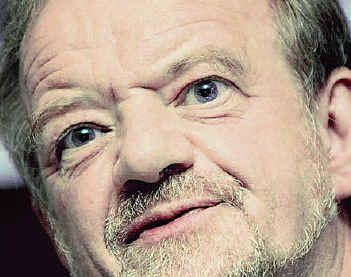Robin Cook: 1946-2005

On Saturday Britain lost one of its finest and most eloquent parliamentary voices. Robin Cook was not telegenic. He was often compared to a garden gnome. In these days when looks are everything, he still managed to rise to very nearly the top of power. As foreign secretary he endeavored to introduce an "ethical foreign policy". He didn't succeed, but he probably came as close we will now for a long time. However, he will now undoubtedly be remembered for his majestic resignation speech before the Iraq war.
The reality is that Britain is being asked to embark on a war without agreement in any of the international bodies of which we are a leading partner - not NATO, not the European Union and, now, not the Security Council.
Only a year ago, we and the United States were part of a coalition against terrorism that was wider and more diverse than I would ever have imagined possible. History will be astonished at the diplomatic miscalculations that led so quickly to the disintegration of that powerful coalition.
Our interests are best protected not by unilateral action but by multilateral agreement and a world order governed by rules. Yet tonight the international partnerships most important to us are weakened: the European Union is divided; the Security Council is in stalemate. Those are heavy casualties of a war in which a shot has yet to be fired.
I have heard some parallels between military action in these circumstances and the military action that we took in Kosovo. There was no doubt about the multilateral support that we had for the action that we took in Kosovo. It was supported by Nato; it was supported by the European Union; it was supported by every single one of the seven neighbours in the region. France and Germany were our active allies. It is precisely because we have none of that support in this case that it was all the more important to get agreement in the Security Council as the last hope of demonstrating international agreement.
Our difficulty in getting support this time is that neither the international community nor the British public is persuaded that there is an urgent and compelling reason for this military action in Iraq.
None of us can predict the death toll of civilians from the forthcoming bombardment of Iraq, but the US warning of a bombing campaign that will 'shock and awe' makes it likely that casualties will be numbered at least in the thousands.
For four years as Foreign Secretary I was partly responsible for the western strategy of containment. Over the past decade that strategy destroyed more weapons than in the Gulf war, dismantled Iraq's nuclear weapons programme and halted Saddam's medium and long-range missiles programmes.
Iraq's military strength is now less than half its size than at the time of the last Gulf war. Some advocates of conflict claim that Saddam's forces are so weak, so demoralised and so badly equipped that the war will be over in a few days.
We cannot base our military strategy on the assumption that Saddam is weak and at the same time justify pre-emptive action on the claim that he is a threat.
Iraq probably has no weapons of mass destruction in the commonly understood sense of the term - namely a credible device capable of being delivered against a strategic city target. Why is it now so urgent that we should take military action to disarm a military capacity that has been there for 20 years, and which we helped to create?
It has been a favourite theme of commentators that this House no longer occupies a central role in British politics.
Nothing could better demonstrate that they are wrong than for this House to stop the commitment of troops in a war that has neither international agreement nor domestic support.
I intend to join those tomorrow night who will vote against military action now. It is for that reason, and for that reason alone, and with a heavy heart, that I resign from the government.
He articulated on that night what millions of people throughout the country, if not the globe, were thinking. He didn't stop the war. He didn't stop the slaughter. What he did do is show that not all politicans abandon their principles. Perhaps if he had co-ordinated his resignation with Clare Short he could have stopped British involvement. We do though have to live our lives forwards instead of backwards.
Blair has lost one of his major critics. The country has lost another of its progressive voices.

